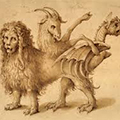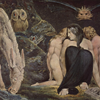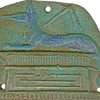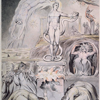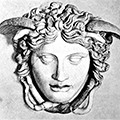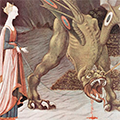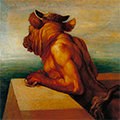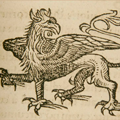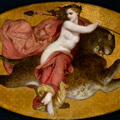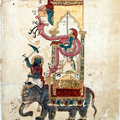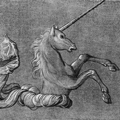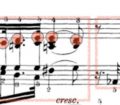Laura Martínez García1
Abstract. The epistemological shift of 17th century is a turning point in the history of Western thought as it triggered a movement from what Foucault called from a “a deployment of alliance” to “a deployment of sexuality”; this reformulation of what Butler describes as “the regulatory practices of gender formation and division” which had been dominant until the scientific revolution evidenced the vulnerability of all individuals when confronted with shifts in the conception of power. Restoration drama, straddling the medieval frame of mind and the pre-modern way of thinking, brings to light the tensions this shift provoked. Taking Butler’s ideas on the performativity of gender and vulnerability, Foucault’s views on power and resistance and Wycherley’s The Country Wife (1675) as its basis, this paper studies the vulnerable position in which men found themselves, studying their daily struggles to maintain the manhood attained through marriage and control of a household.
Keywords: Literature, Restoration drama, Wycherley, gender performativity, Foucault, Butler
Resumen. El giro epistemológico del siglo xvii fue un momento decisivo para la historia del pensamiento en Occidente, ya que supuso el comienzo de un movimiento desde lo que Foucault denomina un “dispositivo de alianza” a un “dispositivo de sexualidad”; esta reformulación de lo que Butler llama “las prácticas reguladoras de la formación y la separación de género” que vienen siendo dominantes desde la revolución científica, pone en evidencia la vulnerabilidad de todos los individuos cuando deben enfrentarse a los sucesivos cambios en la concepción del poder. El teatro de la Restauración, a caballo entre una forma de pensar medieval y una concepción ‘moderna’ del mundo, arroja aún más luz sobre las tensiones ocasionadas por estos cambios en la episteme. Tomando como base las ideas de Butler sobre la performatividad de género y la vulnerabilidad, las nociones foucaultianas de poder y resistencia y la comedia de maneras The Country Wife (1675), escrita por William Wycherley, este ensayo estudia la posición vulnerable en la que se encuentran ciertos hombres en el Londres del siglo xvii, observando sus luchas diarias por mantener la hombría adquirida mediante el matrimonio y la regencia de una familia.
Palabras clave: Literatura, treatro de la Restauración, Wycherley, género performativo, Foucault, Butler
The 17th century was a time of great changes: the end of Cromwell’s rule meant not just the return of the Monarchy, but the return of all the pastimes banned by the Puritans: Christmas, singing, dancing and, more importantly, theatre, all made a comeback. The Restoration of the Monarchy saw the revival of dramatic productions as well as the birth of new genres, such as the comedy of manners. Although this new type of drama was for centuries perceived as empty and devoid of all literary merit2, a mere parade of immorality, the second half of the 20th century saw an intense academic study of the subject and a definite change of perspective in the understanding of the genre3, so that it is now hailed as an accurate reflection of the tensions present in a society that was transitioning from a medieval conception of power, individuals and their bodies, to a pre-Modern way of thinking about the world and humanity4.
The change in the understanding of the world meant a reformulation of the gender roles that sustained social order and a rethinking of the definitions ‘man’ and ‘woman’, a traumatic experience for many who now saw their power dwindling; these struggles for power were satirised in Restoration comedies of manners, a new genre which not only rejected the ‘medieval’ gender order, but which also eyed the new social order with suspicion and advocated for a libertine way of life based on Hobbessian ethics, a theatre “which raised a more general debate about the validity of traditional institutions of moral authority such as marriage”5. This paper aims at showing how Restoration comedy of manners portrays and ridicules the vulnerability of a certain group of men who are caught in between the two normative gender orders (deployment of alliance and deployment of sexuality) and the libertine ideas which come to question them, through the depiction of three flawed gendered performances.
1. The restoration of the monarchy and the changing faces of gender
As Foucault points out in his History of Sexuality: An Introduction (1990), the 17th and 18th centuries saw the development of a society moving from “a deployment of alliance” towards a “deployment of sexuality”6, a shift that entailed a total rethinking of gender roles. The deployment of alliance, paradigmatic of medieval times, had the monarch as its sole head and the spilling of blood as its main symbol7: it was a strict and hierarchical ordering of society based on Biblical teaching and the theory of humours. The same way the King or feudal Lord ruled over his subjects’ bodies and lives, the pater familias governed over his household8. This gendered social order “rested upon twin pillars: the subordination required of women as punishment for Eve’s sin ... and an understanding of men’s and women’s bodies ... in terms of relative strength and weakness”9. In this thinking, men were the perfect copy of God, while women, built from Adam’s rib, were an imperfect copy of the first creature10.
The Restoration saw the crumbling of this system and the emergence of a new one, which came about with the shift in the episteme that brought science and knowledge to the forefront of life. This meant a change in the understanding of gender relations and a division between the sexes that was no longer based on inferiority, since “science discarded the one-sex model in favour of ‘difference’”11: the epistemological shift brought about by the scientific revolution of the 17th and 18th centuries evidenced that inferiority was no longer a valid gender theory to buttress the deployment of alliance. In fact, as Fletcher points out, “once men saw women as distinct beings, a transformation in the nature of patriarchy, based upon a new reading of gender became possible”12. Science was now invoked as the basis for this new gender ideology which claimed that men and women were biologically different and displayed a set of innate qualities that dictated their place in the world: men were physically and mentally stronger and more pragmatic, while women were naturally more prone to nurture and far more delicate and sensitive and so, “this doctrine defined a male sphere that was public—one concerned with the regulated world of government, trade business, and law...—and a women’s sphere that was private— encompassing the unregulated realm of home, family and child rearing”13. Thus, the theory of the complementary spheres was born, along with two new archetypes: the Angel in the House, as described by Coventry Patmore14 and the honnête homme described as divided “upon the heart and the intellect, sentiment and rationalism, desire to known and scepticism concerning one’s ability to know, striving for perfection, but giving the impression of indifference”15.
The spread and imposition of this gender order during the 17th and 18th centuries in Britain was carried out through the publication of advice books for both men and women; these vastly popular volumes insisted on showing which gendered behaviour was proper for each sex and which behaviour went against the ‘natural’ order of things16, while also giving advice on how ‘men’ and ‘women’ acted and carried themselves. These manuals that gave strict directions on how to be a ‘man’ or a ‘woman’, reinforce Butler’s idea that gender, “which we take to be an internal essence ... is manufactured through a sustained set of acts, posited through the gendered stylization of the body”17, that is, that gender, rather than a biological given, is in fact a social performance18, a repetition of certain behaviours “which in some sense institute and maintain relations of coherence and continuity among sex, gender, sexual practice, and desire”19.
In Early-Modern England, one was not born a man, but became one through the performance and repetition of certain behaviours and practices, going through a manhood-acquiring process which culminated in the establishment and ruling of one’s household, the ultimate proof of manliness and power. Still, this was not the end of the road since manly “behaviour was determined by the need first to establish and then continually prove manhood, to himself and others”20 as manhood was a lifelong performance for the benefit of observers and for the benefit of the performer himself for, as Butler explains, “one does not ‘do’ one’s gender alone. One is always ‘doing’ with or for another, even if the other is only imaginary”21: the same way inmates in Bentham’s Panopticon police each other in the absence of a guard in the central tower22, society at large is in charge of policing and pointing out abnormal gender performances that might disrupt the gender order.
This threat of falling into incoherent behaviour, whether it refers to homosocial practices or heterosocial practices that contradict the rules regulating gender performativity, is always present. Some subjects embrace this threat, for, since Foucault explains, power is not merely destructive as it also creates points of resistance23 that give way to alternative modes of performing one’s sex or gender: we are talking now about discontinuous and incoherent discourses that encompass all of those practices censured and excluded by the established order and which gave way, during the Restoration to “a distinctive (intellectual) landscape, dominated by three ... philosophical paradigms: scientifically-based scepticism ...; an epicurean-inspired indulgence in all human impulses that became known as libertinism; and an idealized quest for honesty, truth, simplicity, and unpretentiousness”24 or “naturalism”25. These ideas were translated into the libertine lifestyle that authors like Wycherley and Etherege defended in their works and practised in their daily lives, “a new hierarchy of men, based not on rank, wealth, patriarchal respectability or the dignity of a particular trade or calling, but on sexual attractiveness and sexual performance”26.
Still, while characters like Horner or Dorimant thrive under their ‘betrayal’ of gender norms, others live in fear of it: since manhood requires continuous public assertion, the threats are constant and the ways in which one can be unmanned are multiplied, a situation which created anxiety, violence and suspicion in certain males who see their position of power threatened.
This ambivalent perception of male vulnerability and of the danger of losing one’s claim to manhood and power is fascinating in plays like The Country Wife (1675) which portrays a complex urban society where all individuals are caught in between three discourses that preach three different ways of being. Depending on their gender performance, Wycherley’s characters can be divided into clear groups: the libertines (The Virtuous Gang, Horner), the new men and women (Alithea and Harcourt) and the in-betweeners (Pinchwife, Sparkish and Sir Jaspar), a group of characters who strive to adequate their gender performance to the established rules of certain groups (whether it be the libertine way, the deployment of alliance or the deployment of sexuality), but are incapable of succeeding, for as Krueger explains “men are not ‘masculine’ simply because they are biologically male, but rather ... they are socially considered masculine or effeminate due to how they use their biological bodies and behave as men”27. In the case of Pinchwife, Sir Jaspar and Sparkish, their performances are deeply flawed, a situation which provokes deep anxiety and panic resulting in deviant behaviours and irregular gender performances.
It is precisely this last group that will occupy this study, for in their flawed attempts at performing gender and in their misinterpretation of masculinity and of the threats to their manhood, these characters prove to be the most vulnerable of all since, in spite of being endowed with all the attributes of invulnerability (rich, white, middle-aged, married men) they are not only unmanned, but, more importantly, ridiculed.
2. Flawed gender performances in The Country Wife: jealousy, cuckoldry and effeminacy
The early-modern performance of manhood consisted on navigating, negotiating and reacting in the appropriate way to the external threats and dangers to be found in day-to-day life. Cuckoldry was one threat (real or imagined) which males had to face daily and one which could be most damaging to their manliness since “to be betrayed by a woman ... is to be humiliated, and thus placed in a position of vulnerability”28. Cuckoldry has been a stock motif of drama for centuries now and it became even more important during the Restoration since London, the centre of libertinism, not only offered ample opportunities for debauchery with all its hiding places but, due to its rapid growth after mass migration from the country to the city, soon saw its landscape dramatically altered: homes and shops were now public/private spaces that “did not have firm boundaries and were permeable”29; thus all that “took place indoors was subject to legitimate scrutiny by neighbours and the community”30, so that London becomes a place where “cuckoldry … far from being a private matter, … was a topic of surveillance and discussion”31. This is even more important if we take into account that “loss and vulnerability seem to follow from our being socially constituted bodies, attached to others, at risk of losing those attachments, exposed to others, at risk of violence by virtue of that exposure”32, which means that the publicness of cuckoldry rather than cuckoldry itself is more dangerous in Wycherley’s play, as it is set “in a social world primed by gossip … [where] adultery only became serious when publicly exposed”33.
Cuckolds can be divided into two groups, those who accept their horns or “wittols”34 and those who rail against the knowledge or suspicion; unlike wittols, ‘real men’ were expected to take action when faced with the threat of cuckoldry35 but their reactions were still highly encoded gendered practices and, as such, they required the observance of gender rules or these males would run the risk of unwittingly publicizing “their shame through their undisciplined reactions” becoming thus “stock butts of laughter”36.
Such is the case of Pinchwife, whose fear of losing his manhood coupled with the anxiety of discovery, is at the core of his violently jealous outbursts. Jealousy was seen as a most dangerous and emasculating passion in all three systems: under the deployment of alliance it was perceived “as chiefly a male characteristic which originates from men’s concern to adhere to honour codes which lay emphasis on male control of women”37. The feudal system required men to become the Kings of their own domestic Commonwealths and, as such, they were expected to control all of the members of their household (or subjects), to be “master of all those who lived under his roof”38 displaying thus manly strength and superiority. Any man who gave in to feelings of jealousy was immediately seen as effeminate and lost his manhood by showing not just his lack of confidence in his authority, but also by admitting that he was afraid of losing control over the women under his rule. Thus, at the time, “jealousy could have been interpreted as a sign of weakness—an admission that a man feared that he was losing the sexual control over his wife”39.
According to the teachings and ‘truths’ associated to the deployment of sexuality, “jealousy and other extreme emotions that stem from passion were … deemed unreasonable”40 and unmanly as they betrayed an instability of mind and an inability to control one’s emotions that contradicted the proper performance of manhood which required “discretion, reason, moderation, self-sufficiency, strength, self-control and honest respectability”41. Towards the 18th century and with the strengthening of this deployment of sexuality, jealousy came to be “treated as a serious threat to marital harmony that must be diffused”42.
For the Hobbesian Restoration playwrights, jealousy was not only useless, but senseless, since it contradicted all the principles of libertinism and so they sought to treat it as a comic resource which not only portrays the Hobbesian-inspired sexual competitiveness of the rakes, but which also serves as a social commentary on the inferiority of cits and their “apparent pusillanimity”43.
Wycherley’s play portrays the triumph of the libertine philosophy of life in the ascendancy of Horner, the false eunuch who not only gets away with his having cuckolded most of the gentlemen in the play, but whose deceit is left undiscovered, thus allowing him the opportunity to continue seducing the wives of unsuspecting cits, stripping these males of their manliness, while asserting his stance as the alpha-male of the libertine community. The “Dance of Cuckolds” at the end of the play is a testimony of Horner’s ability and a celebration of the victory of the Hobbesian libertine who not only believes in the right to freedom and pleasure, but who is also extremely sceptical and harbours a deep mistrust of all traditional institutions like marriage44.
Pinchwife, a former libertine who returns to London a married man, is full of anxiety at the prospect of being reunited with the rakes that he used to call friends for, although “married men had a greater claim to trustworthiness”45 it is also true that “maintaining authority over household subordinated—and particularly wives—was a constant labour rather than a given”46 and that “the real test for most men was simply everyday living within a marriage partnership”47. Pinchwife feels this anxiety acutely and “at forty-nine, [he] illustrates the problem of the man growing old, attempting to emancipate himself from the society of the rakes and settle down”48. In his attempt at performing a masculinity far from that of the Hobbesian rakes who had been his friends until recently, Pinchwife becomes a misogynistic and cruel man who openly displays a deep-seated hatred towards the female sex, in a deeply flawed gender performance which emasculates him in the eyes of not only the libertines, but of both deployments.
Although he declares to have had several mistresses, he has decided to marry and to abandon his life as rake and a libertine. Thus, he has taken to the country where he has tried to find a foolish wife that will not be cunning enough to know how to betray him “’Tis my maxim, he’s a fool that marries, but he’s a greater fool that doesn’t marry a fool. What is wit in a wife good for but to make a man a cuckold?”49. This sentence clearly displays the fact that his “peculiar horror of cuckoldry mainly springs from his accurate perception of what is, in fact, a sexual act committed by a man on another man”50, a public vexation that, at the time, would make “nonsense of the gender order”51 and which would ultimately be seen as a confirmation not so much of female wantonness, but of Pinchwife’s inability to perform his role as a man. Pinchwife is in no way unaware of the fact that, at the time, “cuckoldry was frequently linked to a husband’s poor sexual performance”52: rather than the wife’s fault, cuckoldry is seen as the triumph of a ‘real man’ and the result of a flawed gender performance on the part of the husband, who proves to be less of a man, unable to perform his role properly and running the risk of being mocked by a society on the lookout for any misdemeanours.
To prevent this loss of manhood, Pinchwife resorts to an obsessively jealous monitoring of Margery’s activities and company, which has him suspecting not just the innocent girl, but his own sister and his so-called friends. In her study of the evolution of cuckoldry in Britain, Corcoran argues that during the 16th and 17th centuries violence was the most common reaction to the threat (real or imagined) of cuckoldry and explains that “the shame and ridicule associated with being a victim of marital infidelity, coupled with the oppressive cult of masculine honour, led men to feel compelled to acts that were inherently disruptive of social life”53 and Pinchwife’s performance is the perfect example of this: his threats, his mistrust and his generally violent behaviour is not a valid gender performance, but an incoherent discourse which does not fit into the gender roles preached by any of the three systems at work during the Restoration: neither the libertines, nor the deployment of alliance or the deployment of sexuality justify the use of violence over women and, in fact, all three systems see violent males as unmanly and the object of scorn, rejection and disgust.
Although it is true that cuckoldry “was also a matter of serious sexual insult and real anxiety for men”54, it is not the actual act that strips Pinchwife of his status as a man, but his reaction to the news. Pinchwife’s suspicious nature ultimately leads to his downfall, for in his zeal to preserve the manhood he has acquired through his marriage, he resorts to a gender performance that dispossess him of all his manly attributes: he is constantly nagging, threatening and exploding into bouts of heinous jealousy that make his wife find him despicable. Jealousy leads him to irrational behaviours, unjustified violence and threats that not only make the him far less appealing, but which also take away from his status as a man for he is incapable of behaving like one, according to the canons of the age. Jealousy, which in Pinchwife’s case is a preventive measure taken to dissuade his wife from cuckolding him, ultimately leads to Margery cheating on him and proving him unmanly. Although Pinchwife “goes to great lengths to avoid being victimised by woman’s lust”55, he is instead scorned and unmanned by his own flawed performance of gender which does not allow him to successfully culminate his transformation into a respected pater familias, but rather immerses him in a “process of transition from libertine to cuckold”56.
If overzealousness is Pinchwife's downfall, lack of care is Sir Jaspar’s sin and what ultimately leads to his loss of manhood; effeminacy and his “deliberate neglect of women”57 not only points to hi sexual inadequacy58 but towards his incapability of performing the appropriate gender role: as a married man, Sir Jaspar is supposed to guard a manhood that is inextricably linked to the honour of his wife in all three systems; while the deployment of alliance has an authoritative man as its model, the deployment of sexuality praises the man who shows an interest in his wife’s affairs and domestic life; even the libertine lifestyle would certainly disapprove of his blindness to his wife’s real dealings with Horner. Thus, Sir Jaspar “at once the simpleton … and the negligent husband who forgets his marital duties”59 is unmanned and vulnerable to being cuckolded due to his inability to perform gender appropriately.
When in Act 1 scene I he arrives with his wife to Horner's lodgings, he seems too eager to ‘dump’ Mrs. Fidget there and leave to attend what he believes is the most important aspect of a man’s life “The Council will be sat, I must away. Business must be preferred always before love and ceremony with the wise”60. Sir Jaspar is delighted with the idea of his wife is being tended to by an innocuous eunuch who will entertain her and who will cater to all her needs, except those of a sexual nature, while he can attend to the most important issue in life, business, “get you gone to your business together; go, go, to your business, I say, pleasure, whilst I go to my pleasure, business”61.
As Kachur explains, “his primary concern for his wife is to provide her the illusion of companionship by finding her a safe chaperone to accompany her at the playhouse and other harmless diversions”62. Unlike Pinchwife, Sir Jaspar seems to trust his wife and allows her a certain degree of independence and freedom, leaving her in the company of others while he “follows the fashion sense of his stodgy—but ostentatiously wealthy—banker friends in the city”63. Still, his strategy is designed along the same lines as that of Pinchwife, as a way to prevent his wife from ruining his manly reputation, for as he himself declares “’Tis as much a husband’s prudence to provide innocent diversion for a wife as to hinder her unlawful pleasures; and he had better employ her, than let her employ herself”64. Thus, by choosing a ‘harmless eunuch’ as her companion, he believes he has found a “fool-proof and expedient way of preventing her from dishonouring him without any effort or emotional investment on his part”65.
If Pinchwife's violence and irrational behaviour lead to his downfall, Sir Jaspar's cold indifference and lack of interest in his wife justify Lady Fidget's betrayal, as she herself declares “who for business, from his wife will run // takes the best care, to have her business done”66: manhood was a state, rather than a possession, and it required constant care and assertion, it is a lifelong performance which, if played wrong left males in an extremely dangerous state of vulnerability, at risk of losing their manhood, the honour and power associated with it. That is Sir Jaspar's mistake, his complaisance, his belief that once he has acquired manhood through marriage, it becomes a possession that cannot be taken from him.
The manhood-acquiring process is not only based on heterosexual relations and the dominance of the female sex, but has a homosocial dimension which is also explored in Wycherley’s play. Sparkish, a fop about town, is about to acquire this status through his marriage to Alithea, Pinchwife’s sister; Sparkish seems to have all the makings of a proper man: he has the money, the status, the fiancé and he certainly seems invulnerable, in a good position to maintain his manhood and power. Before, after and during the Restoration, “assertion of newly-acquired manhood was all-important, since the force of peer-pressure to perform could not be easily avoided”67. Thus, male competition and sexual banter were an essential part of the manhood-acquiring process in both deployments and even more so in the highly competitive libertine world. Alexandra Shepard explains that the performance of manliness, and boasting about one’s wit, sexual prowess and wealth was an essential part of the performance of manhood68, but that it was reserved only to the youngest males and that “with marriage men’s attentions shifted away from their male friends to their wives”69.
Consequently, males were expected to abandon such youthful and competitive practices once they became engaged. Sparkish seems unaware of this unwritten rule in the manual on how to successfully perform masculinity and insists on flaunting his newly-acquired manhood in front of his so-called friends: the beau “a fool who, in his preoccupation with masculine warfare, flaunts her as a representation of his manhood”70, seems only interested in Alithea as a ‘possession’ his unmarried friends lack, as an ornament that places him one step above them in the ‘male’ pecking order, a symbol of status in a Hobbesian circle of friends in which competition for power is fierce. As he himself declares,
... it may be that I have pleasure in’t [parading a wife to be around], as I have to show fine clothes at a playhouse. I love to be envied and would not marry a wife that I alone can love71.
Sparkish’s lack of interest in the lady contrasts sharply with his passion for fraternising with the Court and for witty male banter, manly performances which are essential in the socialisation of teenagers and young adults; in fact, he is a classic foolish fop, so obsessed with being perceived as witty that although a cascade of insults is thrown at him, he only takes offense when his intelligence is put into question,
Sparkish: What, what, now dear Rogue, has not she wit?
Harcourt: (Speaks surlily) Not so much as I thought and hoped she had.
Alithea: Mr. Sparkish, do you bring People to rail at you?
Spar, How! No, but if he does rail at me, 'tis but in jest, I warrant.
Alithea: He spoke so scurrilously of you, I had no patience to hear him. Besides he has been making love to me.
Sparkish: Pshaw, to show his parts—we wits rail and make love often but to show our parts.
Alithea: He said you were a Wretch, below an injury.
Sparkish: Pshaw.
Alithea: A Coward.
Sparkish: Pshaw, pshaw.
Alithea: A senseless drivelling Idiot.
Sparkish: How, did he disparage my parts? Nay, then my honour’s concerned. I can't put up with that, Sir. (Offers to draw).72
Sparkish seems to believe he belongs to a group of fashionable libertines like The Court Wits, males who, as part of their manhood acquiring process, insult each other. What Sparkish fails to see, blinded by his “delight in deriding and scoring points off”73 the other wits, is that the other men actually despise him and the acts he takes as jokes (being thrown out of rooms, rejected and insulted) are actual proofs of the disdain the truewits feel towards him. The fop is so obsessed with this group of friends and he feels so superior to them once his marriage to Alithea has put him at the head of the group, that he affects “the fashionable negligence of the wits in matters of jealousy”74 believing this to be an appropriate gender performance and claiming that such a passion is more typical of country bumpkins than of the fashionable man-about-town he believes himself to be75.
Sparkish: Oh hide me! There’s my mistress too.
Harcourt: She sees you.
Sparkish: But I will not see her. Tis time to go to Whitehall, and I must not fail the drawing-room.
Harcourt: Pray, first carry me, and reconcile me to her.
Sparkish: Another time! Faith, the King will have supped.
Harcourt: Not with the worse stomach for your absence! Thou are one of those fools that think their attendance at the King’s meals as necessary as his physicians’, when you are more troublesome to him than his doctors, or his dogs.
Sparkish: Phsaw! I know my interest, sir. Prithee, hide me76.
This passage is illuminating and shows how, in his obsession with being ‘one of the lads’, he completely forgets the manhood he has acquired must also be maintained through heterosexual rather than homosocial relations and intimacy: he avoids being alone with Alithea77 since it would prevent him from communing with the fashionable men of Court resulting in a loss of his credibility and reputation as a man of wit, but he cannot wait to plan private dinners and meetings with the rakish libertines he calls friends78. He even declares
Well, that’s a better reason, dear friend. I would not go near her now, for hers or my own sake, but I can deny you nothing; for though I have known thee a great while, never go, if I do not love thee as well as a new acquaintance79,
a statement that clearly portrays his disinterest for Alithea and his devotion to those he believes are his friends.
His general disdain for the lady and his obliviousness to the true feelings of the wits, prove that “his feelings for Alithea have been clearly subordinated to concerns for his own masculinity and wish(es) to use her to torment other males”80 a practice that puts the manhood he has acquired in grave danger. His unwillingness to engage in a heterosexual affair and his deficient performance of gender renders his behaviour effeminate and cancels out any value his engagement may have, thus putting him at risk of losing his manhood and his position of power in the group.
By the end of the play and since he is not capable of putting “an end to the carefree lifestyle of bachelor sociability”81 he is portrayed as an effeminate “fool whom playwrights ridicule onstage”82 and he is humiliated by Alithea who chooses Hartcourt instead. Although some authors have portrayed Sparkish’s fit of jealousy as a moment of revelation which shows how “the money-grubbing ambition at his character’s core erases his foppish façade of urbanity”83, this paper suggests that, since Sparkish’s lack of romantic interest in Alithea can be seen from the very beginning of the play, his violent reaction is not a testament of his interest in money, but the fearful reaction of a male who sees his claim to manliness threatened. Alithea’s rejection not only means a loss of social status, but of gender status, since as a cuckolded husband-to-be, he is unmanned and left out not just from positions of power that married men traditionally occupy, but also from the position he believes he occupies in the group of libertines who value heterosexual relations above all else.
Conclusion
The 17th and 18th centuries in Britain not only saw the collapse of the discourses of truth that had sustained power for millennia and the emergence of a new system of power relations that has survived well until our days, but, more interestingly, the emergence of a third discourse of truth, associated with the libertine lifestyle of the Carolean Court. These three coexisting systems rely on clearly defined gender roles to function properly and although their justification for their gender divisions seem to be quite different, all of them insist on advising males that, once they had acquired their status as ‘men’ (whichever the practices or attitudes each system required from them) they were to remain vigilant, since manhood needed constant attention and assertion. Their ‘manly’ status was, then, a question of publicly enacting highly encoded gendered performances as per the requirements of each of the power systems at work and while certain behaviours were expected of ‘men’ both under the deployment of alliance and sexuality and under the libertine system, others were demonised and ridiculed in all three systems.
At a time when gender notions were shifting between the absolute pater familias of the deployment of alliance and the ‘reasonable’ and restrained man of the deployment of sexuality, Wycherley’s The Country Wife presents us with three examples of what these two systems would call deviant gendered behaviours which would strip any male of his manly and honourable attributes. By showing audiences the dangers and difficulties all males could find in their path towards manhood, Wycherley is not just portraying men as a most vulnerable species, but he is also proposing an alternative mode of being which allows for a wider understanding of manhood: in this theatrical world, rakes become the ideal men, the heroes of a play that
... strove to subvert the established gender roles that were struggling for power in the late 17th and early 18th centuries, advocating an identity based on hedonism, Epicureanism, the Hobbesian ideas of natural order, and a thirst for freedom and personal development84.
While Wycherley, amongst others, perform these alternative gender roles, the two deployments at war during the Restoration engage in a war for permanence and dominance, a struggle to impose their discourses of truth and their gender divisions; this dialectical confrontation aims at encumbering their gender models as ‘canon’, as the ‘normal’ and hegemonic way of being, in opposition to alternative modes of being which are not just seen as deviant, but as effeminate, abnormal and anti-natural. As Butler explains,
... the spectres of discontinuity and incoherence, themselves thinkable only in relation to existing norms of continuity and coherence, are constantly prohibited and produced by the very laws that seek to establish causal or expressive lines of connection among biological sex, culturally constituted genders, and the ‘expression’ or ‘effect’ of both in the manifestation of sexual desire through sexual practice85.
Confronted with such a social prospect, Wycherley, as many of his fellow Restoration playwrights, creates a world where the weaknesses of these two systems are emphasised and exposed, warning their male audiences of the danger and vulnerable position they expose themselves to when they give in to the exigencies of either deployment. Thus, not only does “the world of the play project(s) a clearly defined hierarchy of social prestige, political power and intellectual sophistication”86 but a clear gender hierarchy in which heterosexual, libertine practices are exhorted as the norm, a Hobbesian society in which all males are acutely aware of the precarious balance upon which their grasp on power rests, making it one of the most insightful and thought-provoking Comedy of manners of the British 17th century.
References
Bruegge, Andrew Vorder. ‘17c Social Hierarchy and Character Interpretation in the Country Wife’. International Journal of Music and Performing Arts 2, no. 2 (2014). doi:10.15640/ijmpa.v2n2a3.
Butler, Judith. El género en disputa: El feminismo y la subversión de la identidad. Edición: Tra. Barcelona: Ediciones Paidós, 2007.
Gender Trouble. New York: Routledge, 2006.
Precarious Life: The Power of Mourning and Violence. Reprint edition. London; New York: Verso Books, 2006.
Undoing Gender. New York; London: Routledge, 2004.
Vida precaria: el poder del duelo y la violencia. Barcelona: Grupo Planeta (GBS), 2006.
Corcoran, Kellye. ‘Cuckoldry as Performance, 1675-1715’. Studies in English Literature, 1500-1900 52, no. 3 (2012): 543+.
Erber, Ralph, and Erber Maureen Wang. Intimate Relationships: Issues, Theories, and Research, Second Edition. Psychology Press, 2016.
Fletcher, Anthony. Gender, Sex and Subordination in England, 1500-1800. New Haven: Yale University Press, 1999.
Foucault, Michel. Discipline and Punish: The Birth of the Prison. Translated by Alan Sheridan. London: Penguin, 1999.
The History of Sexuality, Volume I: An Introduction. London: Random House, 1990.
Vigilar y Castigar. Edición: 1. Madrid: Biblioteca Nueva, 2013.
Foucault, Michel, Julia Varela, Fernando Álvarez-Uría, and Pedro Arjona. Historia de la sexualidad. 1. La voluntad de saber. Translated by Ulises Guiñazú. Edición: 1. Madrid: Siglo XXI de España Editores, 2006.
Foyster, Elizabeth A. Manhood in Early Modern England: Honour, Sex and Marriage. London: Longman Publishing Group, 1999.
Fujimura, Thomas Hikaru. The Restoration Comedy of Wit. Barnes & Noble, 1968.
Gollapudi, Aparna. Moral Reform in Comedy and Culture, 1696-1747. Burlington: Ashgate Publishing, 2013.
Kachur, Barbara A. Etherege and Wycherley. Palgrave Macmillan, 2004.
Kahn, Coppelia. Man’s Estate: Masculine Identity in Shakespeare. Berkeley: University of California Press, 1981.
Kaufman, Anthony. ‘Wycherley’s The Country Wife and the Don Juan Character’. Eighteenth-Century Studies 9, no. 2 (1975): 216-31. doi:10.2307/2737598.
Knights, L. C. ‘“Restoration Comedy: The Reality and the Myth” by L.C. Knights, Scrutiny, September 1937’. Scrutiny, no. 17 (1937): 122-43.
Krueger, Misty. ‘“Rouse up Your Self, and Bear You like a Man”: Masculine Anxiety and the Body in Delariviere Manley’s “The Royal Mischief”’. Restoration and 18th Century Theatre Research 21, no. 2 (2006): 40-58.
Kuersten, Ashlyn K. Women and the Law: Leaders, Cases, and Documents. Santa Barbara: ABC-CLIO, 2003.
Lynch, Kathleen M. The Social Mode of Restoration Comedy. Biblo-Moser, 1998.
Martinez-Garcia, Laura. Seventeenth and Eighteenth Century English Comedies as a New Kind of Drama: A Foucauldian Interpretation of Family Relations, Sexuality, and Resistance as Psychological Power. Lewiston: Edwin Mellen Press Ltd, 2014.
Owen, Susan J. ‘Drink, Sex and Power in Restoration Comedy’. In A Pleasing Sinne: Drink and Conviviality in Seventeenth-Century England, 127-42. DS Brewer, 2004.
Perspectives on Restoration Drama. Manchester University Press, 2002.
Panek, Jennifer. ‘“A Wittall Cannot Be a Cookold”: Reading the Contented Cuckold in Early Modern English Drama and Culture’. Journal for Early Modern Cultural Studies 1, no. 2 (2001): 66-92. doi:10.1353/jem.2001.0020.
Patmore, Coventry Kersey Dighton. The Angel in the House. London: Macmillan, 1863.
Ruiz, José Santaemilia. Género como conflicto discursivo: la sexualización del lenguaje de los personajes cómicos. Universitat de València, 2000.
Shepard, Alexandra. Meanings of Manhood in Early Modern England. Oxford: Oxford University Press, 2006.
Thompson, Peggy. Coyness and Crime in Restoration Comedy: Women’s Desire, Deception, and Agency. Lexington Books, 2012.
Toulalan, Sarah. Imagining Sex: Pornography and Bodies in Seventeenth-Century England. OUP Oxford, 2007.
Turner, David M. Fashioning Adultery: Gender, Sex and Civility in England, 1660-1740. 1st ed. Cambridge University Press, 2007.
Vance, John A. William Wycherley and the Comedy of Fear. University of Delaware Press, 2000.
Velissariou, Aspasia. ‘Patriarchal Tactics of Control and Female Desire in Wycherley’s The Gentleman Dancing-Master and The Country Wife’. Texas Studies in Literature and Language 37, no. 2 (1 July 1995): 115-126.
Wade, Ira O. Intellectual Origins of the French Enlightenment. Princeton University Press, 2015.
Wycherley, William. The Country Wife. University of Nebraska Press, 1965.
The Country Wife. London: A&C Black, 2014.
1
Departamento de Filología Inglesa, Francesa y Alemana. Universidad de Oviedo, España.
Contacto con la autora: martinezlaura@uniovi.es
2
Knights, ‘Restoration Comedy’, 122.
3
Lynch, The Social Mode of Restoration Comedy, 3.
4
Martinez-Garcia, Seventeenth and Eighteenth Century English Comedies as a New Kind of Drama.
6
The History of Sexuality, Volume I, 106.
8
Martinez-Garcia, op. cit., 53.
9
Fletcher, Gender, Sex and Subordination in England, 1500-1800, xvii.
10
Martinez-Garcia, op. cit., 118.
12
Gender, Sex and Subordination in England, 1500-1800, xix.
13
Kuersten, Women and the Law, 16.
14
Patmore, The Angel in the House.
15
Wade, Intellectual Origins of the French Enlightenment, 294.
16
Foucault, The History of Sexuality, Volume I, 105.
17
Butler, Gender Trouble, xv.
20
Foyster, Manhood in Early Modern England, 55.
22
Martinez-Garcia, op. cit., 399; Foucault, Discipline and Punish, 200.
23
The History of Sexuality, Volume I, 96.
24
Bruegge, ‘17c Social Hierarchy and Character Interpretation in the Country Wife’, 42.
25
Fujimura, The Restoration Comedy of Wit.
27
‘Rouse up Your Self, and Bear You like a Man’, 41.
29
Toulalan, Imagining Sex, 168.
31
Corcoran, ‘Cuckoldry as Performance, 1675-1715’, 544.
32
Butler, Precarious Life, 20.
34
Panek, ‘“A Wittall Cannot Be a Cookold”’, 66.
40
Erber and Erber, Intimate Relationships, 192.
41
Shepard, Meanings of Manhood in Early Modern England, 9.
42
Gollapudi, Moral Reform in Comedy and Culture, 1696–1747, 137.
44
Ruiz, Género como conflicto discursivo, 78.
45
Shepard, Meanings of Manhood in Early Modern England, 73.
48
Owen, Perspectives on Restoration Drama, 50.
49
Wycherley, The Country Wife, 2014, 24.
50
Velissariou, ‘Patriarchal Tactics of Control and Female Desire in Wycherley’s The Gentleman Dancing-Master and The Country Wife’, 118.
55
Thompson, Coyness and Crime in Restoration Comedy, 32.
56
Owen, ‘Drink, Sex and Power in Restoration Comedy’, 135.
57
Kaufman, ‘Wycherley’s The Country Wife and the Don Juan Character’, 226.
59
Wycherley, op. cit., 1965, xiii.
60
Wycherley, op. cit., 2014, 11.
62
Etherege and Wycherley, 152.
64
Wycherley, op. cit., 2014, 12.
65
Kachur, Etherege and Wycherley, 153.
66
Wycherley, op. cit., 2014, 53.
68
Meanings of Manhood in Early Modern England, 113.
70
Vance, William Wycherley and the Comedy of Fear, 99.
71
Wycherley, op. cit., 2014, 72-73.
73
Owen, Perspectives on Restoration Drama, 50.
75
Wycherley, op. cit., 2014, 39.
84
Martinez-Garcia, op. cit., 256.



